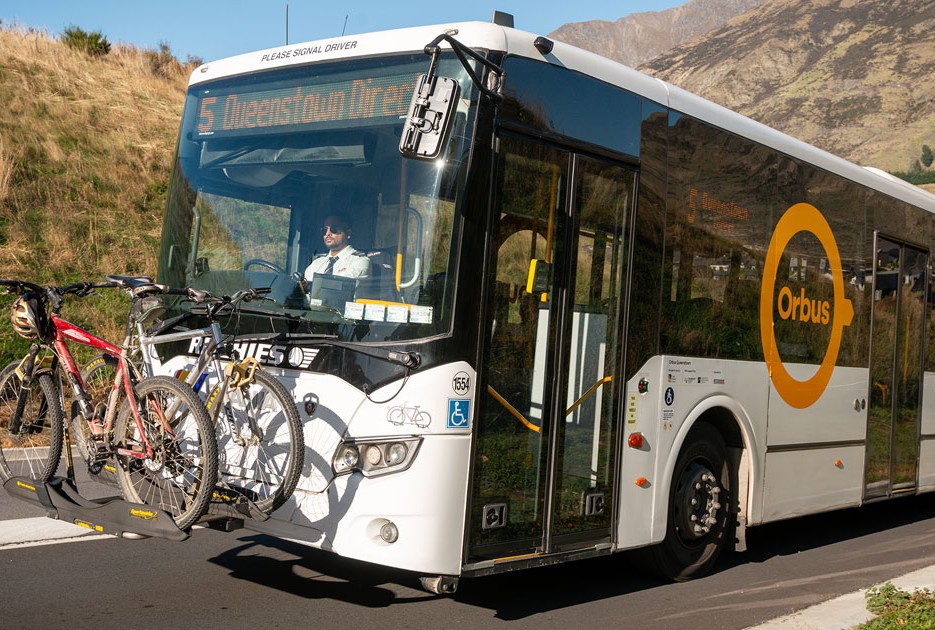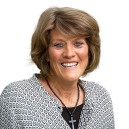ORC proposes hefty rates rise

With a forecast 18.8% average rates increase proposed – an average $84 rise for the average Otago household, the Otago Regional Council will be focusing heavily on improving public transport in Queenstown and simply “keeping traffic flowing and people mobile”, says chairperson Gretchen Robertson.
She cited inflationary pressures as the key factor in driving rates up from the forecast 12% in 2021 to 18.8% - 6.8% more than forecast in the council’s Long-Term Plan.
Robertson says while the council absorbed inflationary pressures last year that was no longer an option, given significant rising costs. “Inflation has been the wild card since the initial 12% forecast was made and has been building over the past year,” she says.
“We understand that any rates increase is a very difficult message at this tough time for people. However, the council is also affected by inflation on wages and goods and services, which is also a national problem.”
In Queenstown roadworks are going to be “one of the huge challenges” experienced. “We are working very closely with NZTA and QLDC to ensure we pull all the possible strings we can to ensure a complete standstill is not Queenstown's future,” Robertson says. “Our string is the Public Transport System.”
Funding infrastructure like a bus network is unique in an area where tourist numbers are high, she says. “Rates contributions sit beside NZTA and fare box inputs to cover costs. When ratepayer numbers are low and the demand high this is a unique issue.”
Rates increases aren’t popular, but the council has heard “strong messages of investment priority” from the Queenstown Lakes community with public transport and caring for the district’s unique and spectacular environment top priorities, she says.
“It's important we open the doors to a full and frank conversation with the local community through our Long-Term Plan consultation to understand the levels of service they want from the council and what they’d want to invest in most.”
The council also needs to think carefully about how best to pay for these.
Queenstown Lakes has a high population growth and high tourist numbers with fewer ratepayers to pay for the services it needs. “That’s a big issue and one local government can’t solve alone. Central Government has a crucial role here too,” Robertson says.
The council’s also had some “very proactive and positive demand” for more investment into environmental stewardship initiatives in Queenstown Lakes where people have been “strongly vocal” about the need for more investment into water quality, biodiversity and biosecurity.
Monitoring has shown a recent trend – minutely small increases in Chlorophyll a, reflecting an increase in microscopic plants. “The reason for this is unknown, possibly due to weather conditions, but we don’t know.”
“Our Deep Otago Lakes are real treasures, beyond value. Ensuring these retain these high qualities is important to everyone so understanding more about what is happening is crucial,” she says.
The council has started a Deep Lakes Working Group and Technical Advice Group, focusing on the risks these lakes are facing, ensuring better technical understanding and how to protect them, she says.
“Investment here will cost into the future, but community has strongly requested this work.”
The council invests in directly funding community-driven environmental projects through its Ecofund and is consulting on a new $500,000 initial investment in large landscape scale projects. “There’s been some amazing leadership in the Queenstown Lakes District in this area.”
Queenstown Lakes has also been “particularly vocal” asking the council to invest once Jobs For Nature moves on. “We plan to ask the Otago community about investment in these landscape scale projects,” Robertson says.
The quantum, the timing of investment and how best to pay are all factors to consider. “It’s important to talk to community about what they value most and what they want to invest in.”
She says the council has an important daily role as environmental guardians. Working with developers, industry, primary sector, and territorial authorities to ensure compliance with regulations is a big council role and one the community gives a lot of feedback on and pushes for.
“This doesn't just mean being an environmental policeman. It means proactive community-based roles building knowledge, skills and understanding.”
The council’s very mindful of the total average regional rates figure and is working hard to bring this down, she says. It’s made adjustments already which reduce the total and draft figures are still being analysed.
Local rates vary depending on what services are offered and needed in each area and ORC has developed a tool that ratepayers will be able to use online to work out what their draft rates bill looks like.
The council has some of the lowest rates per head of capita for NZ regional councils but is very aware of the need to be as prudent as possible and ensure it’s running as efficiently as possible, Robertson says.
The council has looked at its rating model and examined the principles of who should pay. There are some proposed changes and its important the community has a chance to understand these too.









